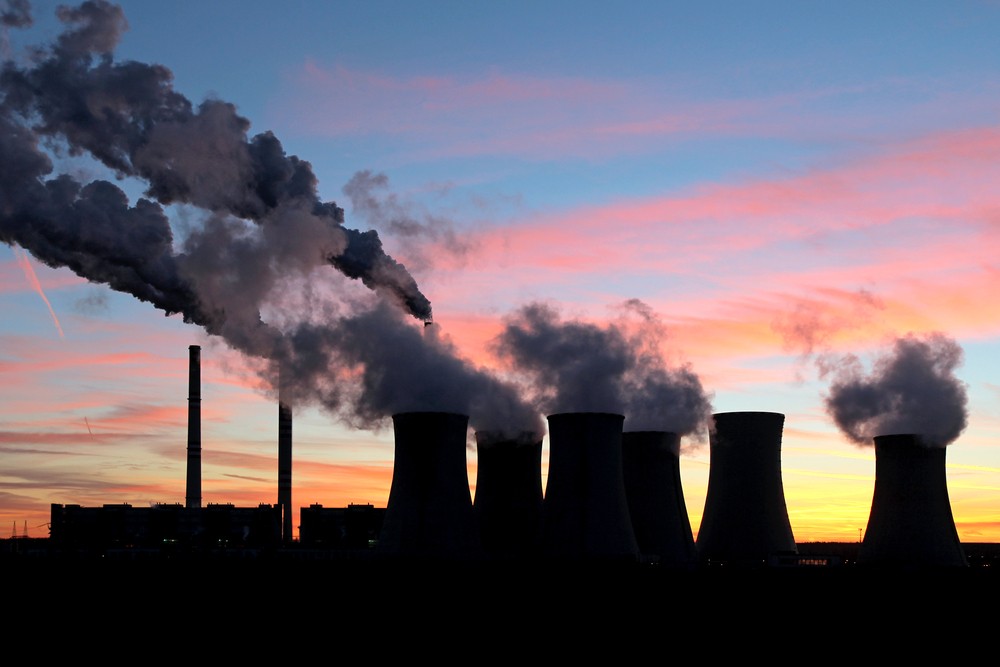Popular Reads
Top Results
Can't find what you're looking for?
View all search resultsPopular Reads
Top Results
Can't find what you're looking for?
View all search resultsMaximizing our massive carbon trading potential
Carbon trading is still being conducted on a business-to-business basis, so the government’s role as a regulator isn’t very visible because no particular set of rules has been established.
Change text size
Gift Premium Articles
to Anyone
T
he country’s economic potential for carbon trading stands at around Rp 350 trillion (US$25 billion) in the next five years. This calculation is based on the area of forests in Indonesia.
In essence, carbon trading means that a state, entity or polluter who produces excess carbon emissions can purchase the right to emit such emissions from its territory, while other states producing less emissions can sell the right to produce emissions in accordance with the set limits to another state or territory.
By replacing the carbon emissions, the states or polluters are expected to comply with the stipulated limits of carbon emissions. Carbon trading becomes the most frugal carbon emission reduction method that could be exploited.
Carbon trading has been recognized since the Kyoto Protocol regarding climate change. The succeeding measure was the Paris Agreement, or the Convention of Paris. The states ratifying the Paris Agreement are bound to comply with the limit of maximum carbon emissions.
In other words, industrialist states producing carbon emissions that exceed the standards provided by the Paris Agreement shall compensate by buying unused leftover carbon emission reserves from other states.
In the context of economic analysis of law, Paris Agreement is highly beneficial for Indonesia, because Indonesia owns one of the three biggest forests in the world. The Paris Agreement also emphasizes how excessive use of emissions is deemed as environmental exploitation. It is obligatory to restore the environment, in order to guarantee the balance of the climate and earth conservation.
Therefore, the condition for carbon trading is that the area or territory which emission is transacted must be in the form of conserved forest. In the calculation of the Environment and Forestry Ministry (KLHK), as of 2020, the potential of economy and carbon trading in Indonesia reaches Rp 350 trillion for the next five years, in accordance with the area of forests in Indonesia.
The concept of green growth economic is also starting to be recognized. For example, in Indonesia, GoJek and Trans Jakarta are buyers in carbon trading. In the international level, L’Oreal and Lutfhanza have also been acting as the buyer in carbon trading as a net-off of excess emissions.
The government needs to provide specific regulations pertaining to carbon trading. Presently, according to Law No. 41/1999 on forestry, aside from the state, private entities are also allowed to manage forests, particularly in the area of convertible production forests (HPK). Private entities may apply for an ecosystem restoration business license (known as IUPHHK-RE). Holders of IUPHHK-RE can also conduct carbon trading and obtain certifications for carbon trading purposes.
Bashmakov (2019) stated that based on the activities in the Chicago Carbon Exchange (CCE), carbon trading may become a sector that accounts for a major economic income in Indonesia, if managed properly. Currently, in practice, carbon trading is still being conducted on a business-to-business basis, so the government’s role as a regulator isn’t very visible because no particular set of rules has been established.
Reflecting from the current condition, there is an urgency to finish a more detailed legal instrument pertaining to carbon trading that has been discussed since 2019. This regulation is pivotal for the sake of investors intending to manage HPK areas with an ecosystem restoration license. This regulation will also cement the government’s role as a regulator, particularly in the supervision of carbon trading’s economic values, such as establishing taxes for carbon trading.
Therefore, it is important to finalize the regulation, originally scheduled to be enacted in 2020, in order to increase the economic value of the forests in Indonesia. Furthermore, legal certainty will attract more investors and expand the market.
Legal uncertainty will reduce the economic potential of carbon trading because most carbon trading transactions are based on long-term contracts and involve international entities. Commercially speaking, legal certainty and clear regulations will be more beneficial for the business.
By referring to its economic potential and the forest area in Indonesia, carbon trading may become a source of foreign exchange and an alternative to resolve Indonesia’s trade balance issues. Certainty in terms of regulations will also attract domestic investors to dabble in the carbon trade business (as according to the negative investment list issued by the Investment Coordinating Board, the business is restricted to foreign investors). The carbon trading business also requires significantly less capital compared to, for instance, the palm oil or industrial forest plantation business, mainly because the competition in carbon trading isn’t as tough as the other two. This advantage puts carbon trading in a better prospect.
Carbon trading is also related to social forestry program. In this case, the community may establish a cooperation entity to manage the forest land that was handed over by the government and manage such forests for the purpose of ecosystem restoration. Ultimately, carbon trading is also beneficial for the community.
Therefore, carbon trading may become an alternative to stimulate the economy during its hard times in 2021. The advantages are beneficial to stakeholders’ interests, and environmental management based on the green growth economic concept may be realized.
***
The writer teaches at the International Business Law Program, University of Prasetiya Mulya. The views expressed are his own.










